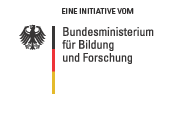Hannelore Daniel: The energetic designer of nutrition research
-
 <ic:message key='Bild vergrößern' />
<ic:message key='Bild vergrößern' />
- Hannelore Daniel is the Director of the Zentralinstitutes für Ernährungsforschung (Central Institute for Nutrition Research) at the Technical University München und current holder of the Chair of Nutrition Physiology at the Technical University. Quelle: TU Munich/Hannelore Daniel
31.07.2007 -
"I am an Aries – I simply must get my way", says Hannelore Daniel of herself. The Director of the Central Institute for Nutrition Research at the TU Munich has shaped nutrition sciences in Germany more than almost any other scientist. The fact that the discipline has emerged from the sometimes-mocked domestic economy and, in the meantime, is taken just as seriously as molecular biology or genetics can be traced in large part to her pioneering work and assertiveness. Occasionally, she also makes good use of more unorthodox methods: "If I am speaking before consumer protection groups about agrobiotechnology, I eat a gram of DNA, in order to show that genes are not actually harmful perse."
The original plan was to study architecture, or to become a graphic artist, says Daniel, who is now in her mid fifties, of her career development. And what exactly brought her to study nutrition sciences? "I can’t really say any more", she says, laughing. The fact that she would later create not buildings but a whole scientific discipline is something that she could not have dreamed of. The point at which she knew that the science was her life only came when she was working on her diploma thesis, where she finally had her own small project, and the laboratory too, "That’s where it happened", she remembers.
How do nutrients pass through the cell membrane?
During her doctoral studies she was introduced to her main subject area, to which she has remained faithful to this day: How nutrients pass through the cell membrane. That food travels, for example, from the intestine and in the correct form into the right cells in the body is not self-explanatory. At the beginning of her career, Daniel applied entirely new methods: "I believe that, at the beginning of the 90s, I was the first researcher in Germany to import molecular and cell biology into nutrition research" she says. However, this was not done in isolation. According to Daniel, "just because, for instance, you know something about the citric acid cycle and the ß-oxidation, does not mean that you understand what’s happening in the body as a whole". Her goal was always to transfer knowledge from biochemistry and cell biology to the level of organ functions and the entire organism. When Daniel received a call to work in Giessen in 1992 after a three-year stay in the USA, her area of study became something that she had to come to grips with on her own. Her Chair for the Biochemistry of Nutrition was at the time the only one of its kind in Germany and she even wrote the textbook for the course. "There was simply nothing suitable out there", says Daniel of her debut as an author.
The dream: to get to the bottom of the structures of transporter proteins
Daniel is still dealing with nutrient transporters, meanwhile at the Technical University Munich. "We explore every level, from gene cloning to transcription analyses to the structural analysis of proteins and what’s happening on a metabolic level ". In such a way, we use everything that the laboratory can offer as a model. "I have a veritable zoo in here, from E. coli to C elegans up to mice and humans". Daniel thinks there is much yet to do, particularly in explaining the structure of transportation proteins, The first nutrient transporter - E. coli Lac Permease – was crystallised four years ago. To date, no structures from higher organisms have been recognised. “This is a dream in my life as a researcher, that I will one day be able to see more on a structural level”, she admits.
Daniel: "Nutrition research is still a lowly discipline"
However, the energetic Professor is by no means limited to researching from the test tube. In studies on the effect of nutrients in humans, she applies her knowledge of molecular biology and genetics to the level of the organism. She also approaches the socio-political aspects of nutrition with unusual methods: "If I speak with consumer protection groups about agrobiotechnology, I begin by eating a gram of DNA, in order to show that genes are not harmful perse."
Daniels molecular sculpture will not be finished for some time, however: "Nutrition research in Germany is still seen as a lowly discipline". Above all, the next generation of scientists is missing. Nevertheless, or maybe exactly for this reason, Daniel has remained faithful to the university and her teaching position. This is not always easy, more recently in particular: "The enthusiasm for studying is lacking”, says Daniel of the upcoming generation of researchers. "If I have one wish before I leave this planet, then it would be to work again with young people who really want something but don’t yet have everything”. Time permitting, Daniel dedicates her spare time herself to her two passions: archaeology and art. Also privately, she remains committed to her designs.
Author: Miriam Ruhenstroth


